Davit and Arpine’s teams start the morning in Synergy in English style: tea and newspapers to catch up on the latest news. Davit Mkrtchyan is the E-Justice development manager of the company, and Arpine Matevosyan is the Business development manager.
Discussions about another contract in the field of E-Justice are part of the “ritual” of tea and newspapers. Of course, everything does not have to be like in a film, but there are many attractive and interesting episodes in their work.
It has been six months and Synergy has already signed new contracts to install digital solutions in 4 more countries. They will create systems for the management of forensic cases in Moldova, prisons in Jamaica, and federal courts in Ethiopia. The system of the office of the representative of Armenia at the European Court of Human Rights will also be added to these programs. Synergy’s E-Justice digitalization solutions are already on all continents.
“Every morning, part of the team studies the international news. Sometimes we work for a country, and then suddenly hear that it was hit by a flood, an earthquake or a war. Everyone in our team works on the competition program entrusted to him/her, and during the day you also have to follow the news and be ready for new developments that have a direct impact on the business,” says Arpine.
The business development team works to identify opportunities in different areas and expand Synergy’s portfolio of projects, while Davit’s team specializes in E-Justice development.
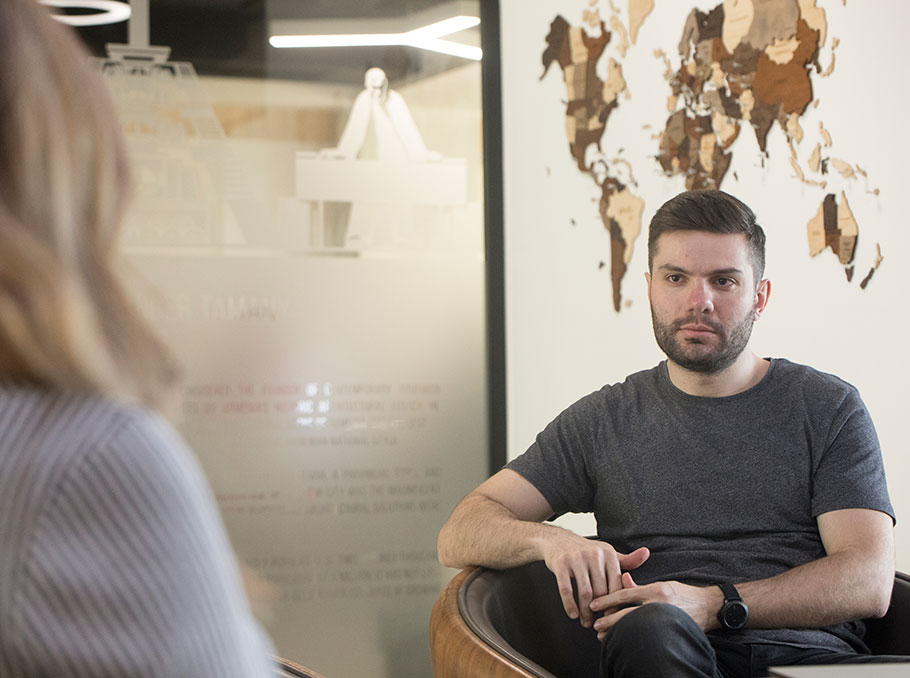 David Mkrtchyan
David MkrtchyanPhoto: Mediamax
“We have already selected the regions the work with which is a priority at the moment. We also read the news, because political changes to natural disasters affect the decisions of states. Then we start to find and establish contacts with state institutions, to understand if they have a digitalization agenda and when they want to pass to that agenda. We usually advise them to visit countries that have a successful experience of digitalizing judicial systems, because if your neighbor says that this new program is more convenient, it sounds more trustworthy than the words of the person who created the program,” says Davit.
The secret to gaining the trust of more than 80 countries in the world
Davit and Arpine say that in the business-to-government (B2G) model, experience and results of the carried out work help more. This is the only way that all Synergy projects have gained the trust of people in more than 80 countries around the world. Especially the digitalization of state structures implies a great effort and a huge volume of work and understanding of the importance of all that, the company created the business development department.
“Our main connection is with the ministries of justice and courts and other justice institutions affiliated to them, so the work is organized by state or international tenders. The result of the work can be seen after a considerable period of time because the results of the competitions can be summed up in a few months to a few years,” says Arpine, Business development manager at Synergy.
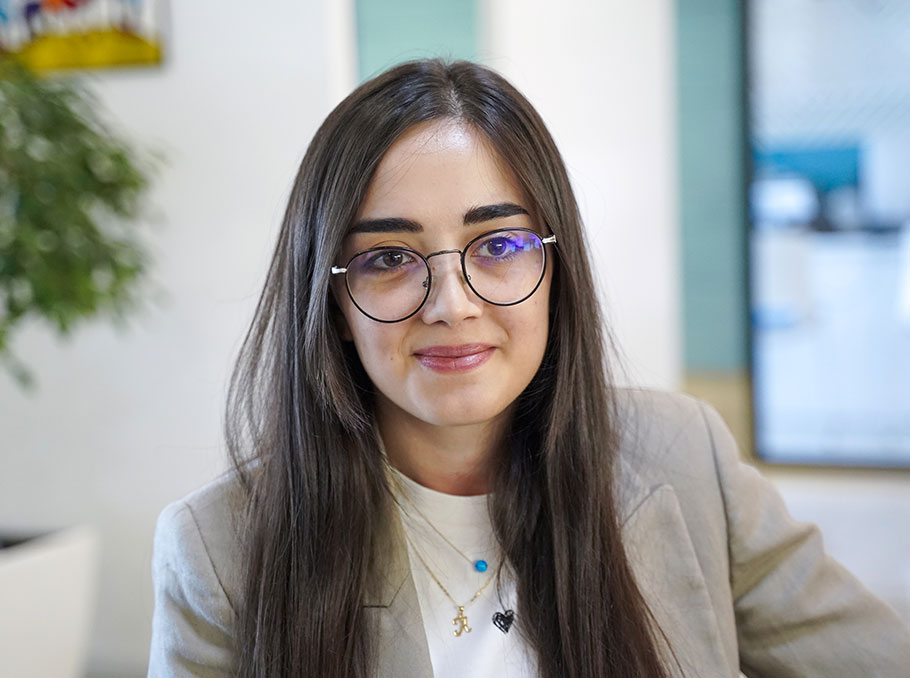 Arpine Matevosyan
Arpine MatevosyanPhoto: Mediamax
“The number of tenders for digitalization of the justice sector is growing every year. We study the 5-10 year strategic plans of the states, the programs of international organizations (donors) in different countries. Then we inform them, for example, how client courts, the prosecutor’s office, the police and other departments, using digital solutions, saved more than 30 million papers per year. We aim to increase that number to 100 million. As a result, we will help to save 500 tons of paper, which is 10,000 trees and return more than 240 tons of CO2 annually to the planet,” says Davit, who has many years of experience in program development management in various fields.
Snowball effect with Synergy technologies
“We also help the heads of various international and state institutions to understand how to go through the difficult path of digitalization, what are the nuances of our solutions, what is needed to start such a project, what to pay attention to, who can be a good example. It turns out that our E-Justice development team is a link between a new country, a new structure, new plans and existing solutions, donors and successful projects. In this way, we also become experts in the field. If we do not have successfully implemented projects in our portfolio, we will end up making empty promises. But in parallel with winning new tenders every year with the snowball effect, by the response received from different countries we get convinced that our digitalization systems are used, they trust us, and from our small country we are able to achieve big changes in the world,” says Davit.
 Arpine Matevosyan and David Mkrtchyan
Arpine Matevosyan and David MkrtchyanPhoto: Mediamax
Arpine adds that there is not much room for marketing campaigns in the field of justice systems, so they prefer to spread information through human contacts.
“The experience of our partner Eswatini is very appropriate to mention. They attended our conference in Rwanda, where dozens of countries participated. They saw our system and were in touch with our team long after the conference to understand what they want, what is the right way and procedure to turn words into action. Besides, in the last 10 years, the world is moving towards digitalization and automation, and due to this, the demand for the systems we have developed is increasing. The same was the case with Eswatini, Ethiopia, Moldova, Jamaica and other programs: thanks to the regional experience and our product, we win various tenders. Our ready-made solutions also help to work more effectively with each new partner,” says Arpine.
With the idea of creating a new platform for E-Justice solutions
During the coronavirus pandemic in Rwanda, for example, the number of cases sent to court remained unchanged due to the existence of a digital court system. In the United States, however, as studies have shown, a 50% reduction in the number of cases going to court was registered. In other words, even developed countries that did not update their systems faced very serious problems. This has created a new picture in the market, even for developed countries.
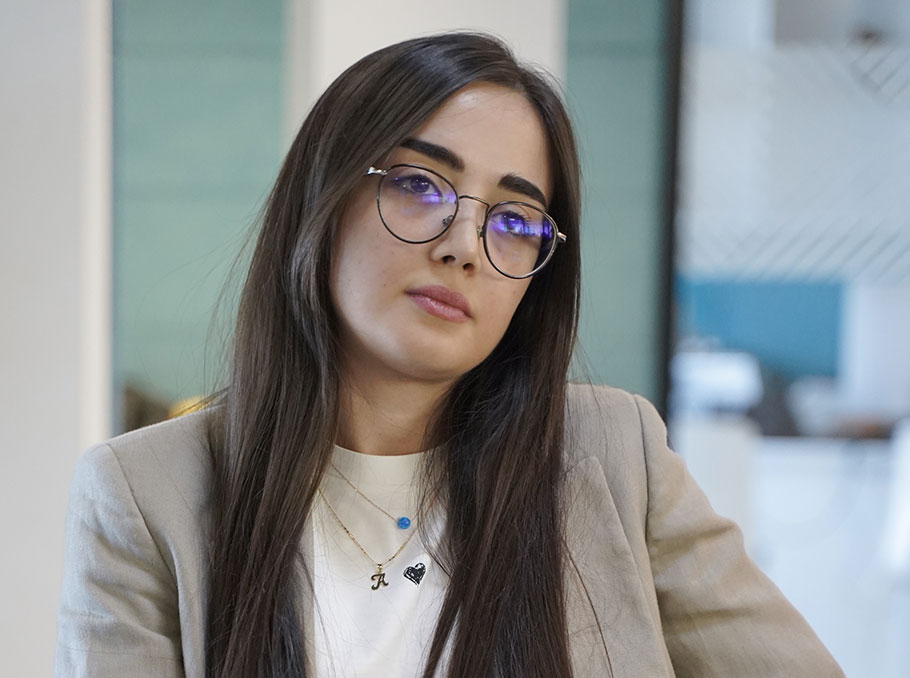 Arpine Matevosyan
Arpine MatevosyanPhoto: Mediamax
“We believe that our demand in the digitalization of E-Justice will increase,” says Arpine.
Synergy assures that their competitive advantage is not only technology, but also people: they do not present themselves as a “code writing” IT company, but they have a group of specialists, specifically in the E-Justice department, about 70 people, who are focused on the development of E-Justice solutions.
“We help especially those countries that are in the phase of reforms, that is, the digitalization programs that are written and are on the table are starting to be implemented. Many international organizations also financially support these changes. On the other hand, digitalization requires serious legislative changes, political will and organizational work. Many developed countries already digitized years ago, and in many cases, changing is more difficult than starting from scratch. Constructing a building in an open area is easier than dismantling and assembling the existing one,” says Davit.
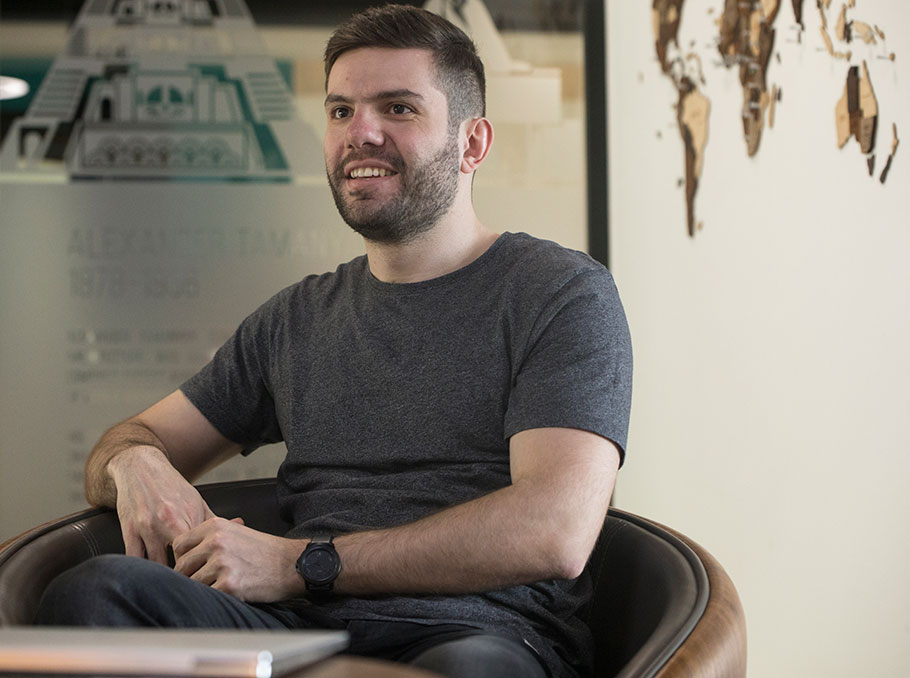 David Mkrtchyan
David MkrtchyanPhoto: Mediamax
Arpine and Davit say these achievements have given new ideas to Synergy. They started a series of professional webinars, where more than 300 participants from 95 countries registered last year alone. By continuing the series of webinars, they aim to create a new international platform that will unite countries that already have digitalization experience and those developing a digitalization agenda. The aim of the new platform is not only to discuss technical possibilities but also to give the representatives of all countries an opportunity to exchange experiences.
Marie Tarian
Photos by Emin Aristakesyan


















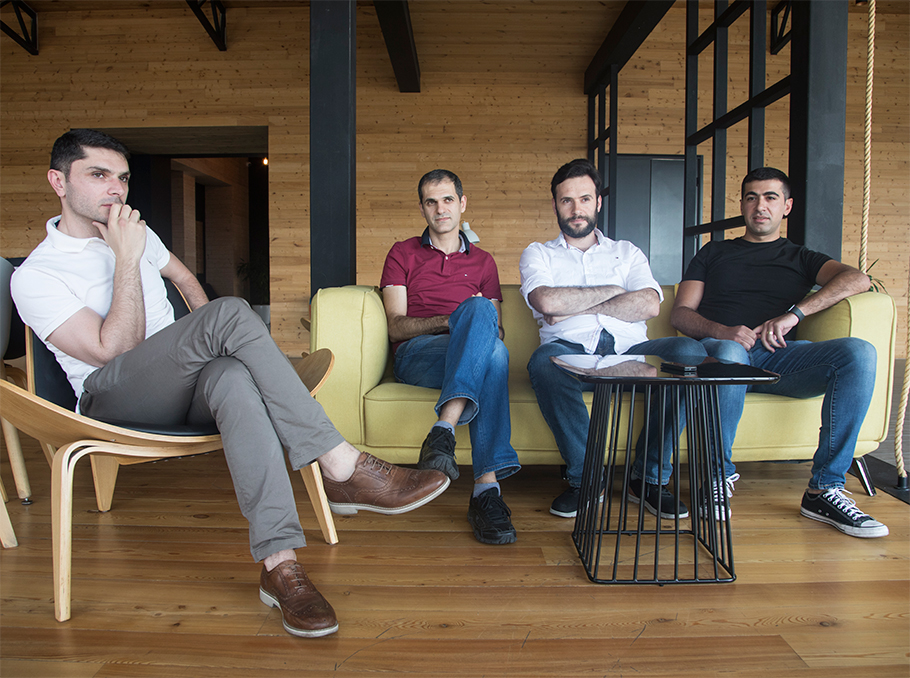
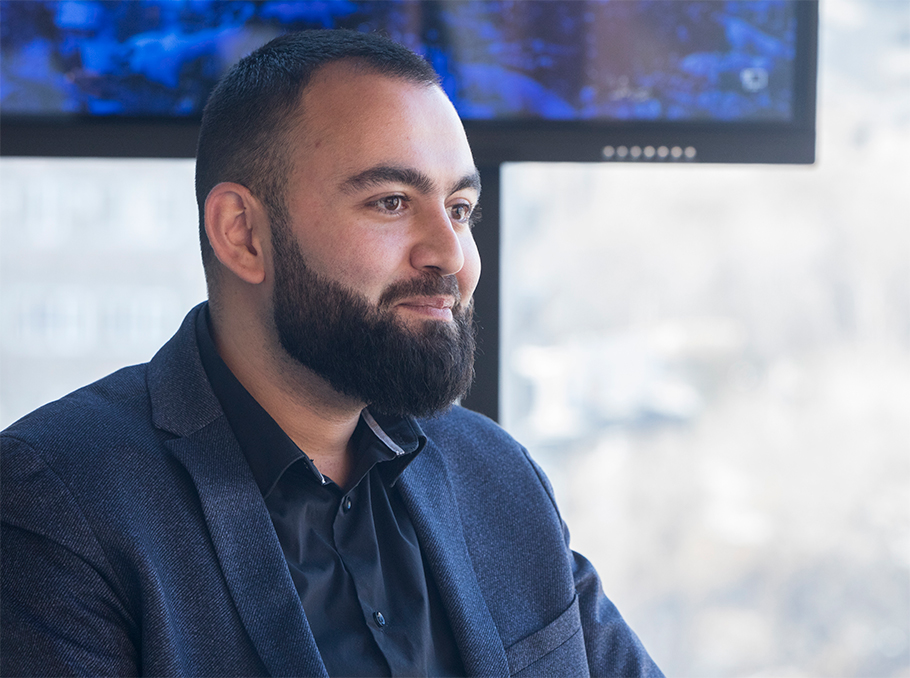
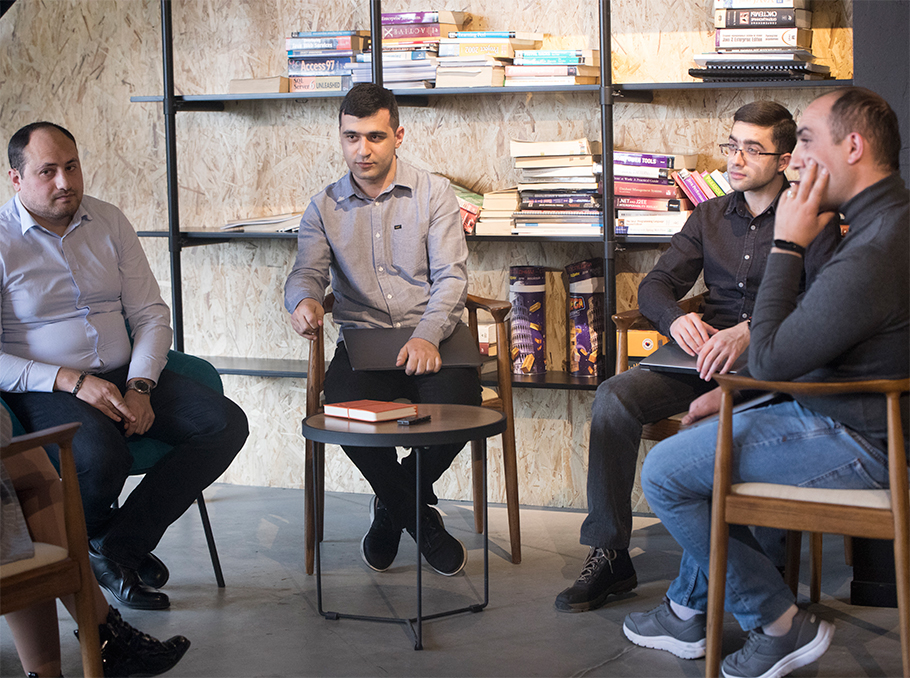
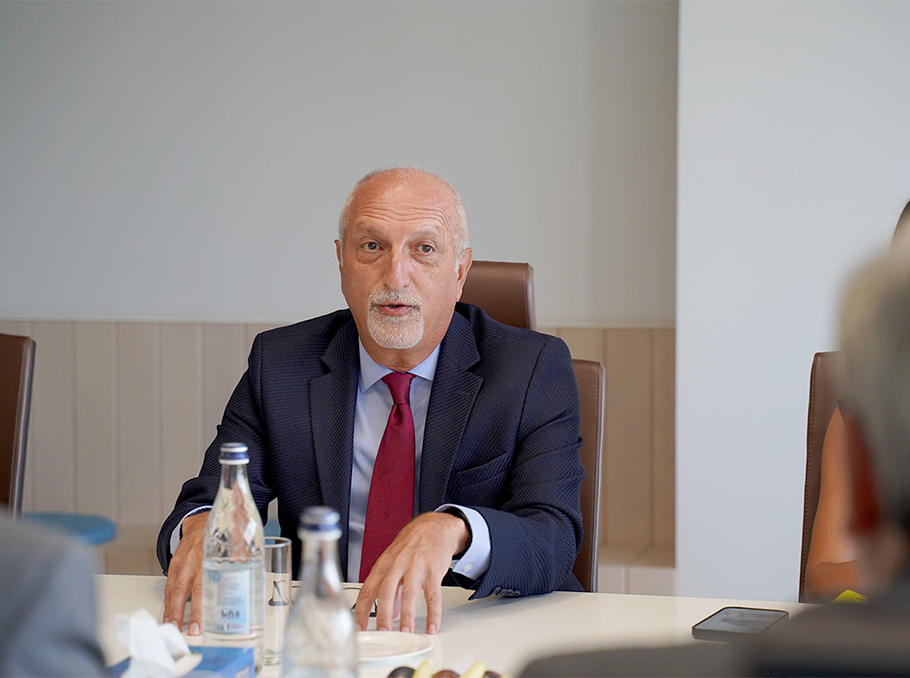






Comments
Dear visitors, You can place your opinion on the material using your Facebook account. Please, be polite and follow our simple rules: you are not allowed to make off - topic comments, place advertisements, use abusive and filthy language. The editorial staff reserves the right to moderate and delete comments in case of breach of the rules.